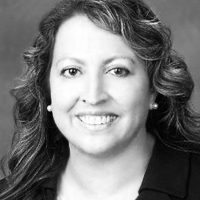Why Reflect as an OT?
Reflective practice involves the practitioner in a continuous internal dialogue in which the relationship between the professional self and the personal self is kept alive and thought about.
Le Riche (1998, p.34)
Le Riche talks about taking a little bit of time to stop thinking only about your clients and everything that you have to do within your role, and think about yourself. Sometimes as OTs we are not so good about that. We can be servants to our profession. We serve others. We take care of other people. We tend to put others before ourselves. Some of this might be a little challenging to you, but I am going to ask you to stop and think about yourselves, and put yourselves first. Why would we do this? What's the point?
Epstein, et al.
Epstein, et al. has done some research on this. According to him, the key to reflection and why we want to do it, is because it invites doubt and ambiguity, which creates an open mind. As a therapist, we want to make sure that we do not get stuck in some of our linear thinking. We want to expand our horizons and stay fresh. He also found that critical self-reflection is at the heart of effective clinical work. I know that everyone here, and every OT that I meet, has the goal to always be effective in our clinical practice. This is a really important piece of that puzzle.
Knight
Knight also found that it is important to respect the emotional toll and prevent burnout. I am going to ask a little personal question here. How many of you have ever felt, I am not going to say "burned out", but felt that you were starting to get a little exhausted emotionally. It looks like almost everybody in the audience raised their hand. Sometimes we cannot effect change with some of the emotional issues at work regarding what kind of clients you get, what kind of administrators you work for, or what kind of paperwork you have to do. But this can serve as an inoculation towards that. If you use reflective practice it can help prevent some of that burnout that you do not have any control over.
Dawson
Dawson also found that reflective questions do not need to have one correct answer. They just simply disrupt common ways of thinking. Reflective thinking facilitates your perspective to be fresh. You can look at the situation with a fresh sense, and I think you can see how that would decrease some of that frustration that we can experience as a healthcare provider.
